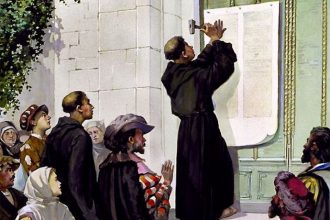
A 14-Point Rebuttal to The Nashville Statement from a Straight Cis Christian Man
In the wake of the Council on Biblical Manhood and Womanhood’s “Nashville Statement,” RD published commentaries by…
Read More
In the wake of the Council on Biblical Manhood and Womanhood’s “Nashville Statement,” RD published commentaries by…
Read More
In a recent article in the New Republic psychologist Paul Bloom charges that the evangelical scientist is using the same logic as those who push ID. Is he right?
Read More
Much of the hullabaloo surrounding Rick Santorum’s comment that President Obama is a “snob” for pushing college is missing the bigger picture: that Santorum is a cosmic conspiracy theorist, and higher education sits at the heart of the imagined conspiracy.
Read More
An evangelical former debating partner claims the self-proclaimed antitheist is “lost forever.”
Read More
At the root of our desire for retribution is the wish that those who have wronged us feel the full weight of what they have done, suffering remorse proportionate in severity to the gravity of their crime. In short, we hunger for their redemption. And so, when the retributive impulse is finally satisfied, it naturally resolves itself into forgiveness. The darkness is lifted, because the evil—the dissociation from the good that inspired the crime—has been destroyed.
Read More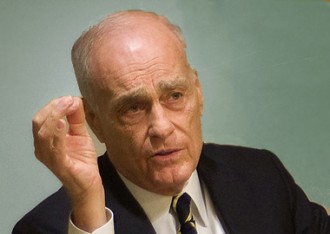
When he’s not writing bestselling books, Vincent Bugliosi is a legendary prosecuting attorney. As such, he is certainly well acquainted with the legal policy of presumption of innocence. His newest book, Divinity of Doubt, a treatise on agnosticism, would have been much better if Bugliosi had taken this principle into account in the context of his arguments for, and against, God.
Read More
Bell, the enormously popular pastor of the enormous Mars Hill Bible Church, has a new book coming out this month called Love Wins in which Bell “puts hell on trial, and his message is decidedly optimistic—eternal life doesn’t start when we die; it starts right now. And ultimately, Love Wins.” This description launched a frenzy of reactions within the evangelical community.
Read More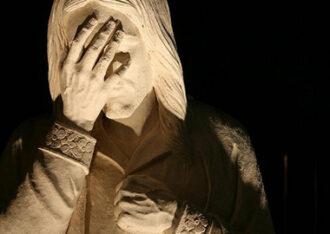
Conservatives tell me that when I reject the condemnation of homosexuality I’m selling out to secular values. But the reality is the opposite. Were I not a Christian I would not be so passionate about gay rights. My passion, born from my commitment to an ethic of love, is intensified every time a young person like Zach Harrington comes to me crying out in need or despair, too often in the most tragic terms.
Read More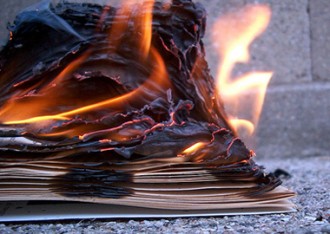
Last week the nation (and much of the world) watched Terry Jones, pastor of a minuscule Florida congregation, threaten to burn copies of the Qur’an on September 11, abruptly change his mind. But while much of the media attention to this story has actually revolved around, well, the media attention itself, this is a good time to ask ourselves what it means, historically and symbolically, to burn a holy book. And what does book burning have to do with the crucifixion?
Read More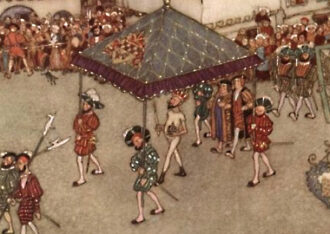
The other day, Terry Sanderson—president of the United Kingdom’s National Secular Society—published a short, scathing indictment of theology in The Guardian, a piece titled “
Read More